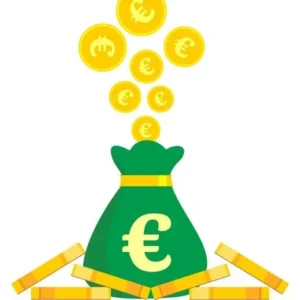The European Investment Bank (EIB) and the European Investment Fund (EIF) have approved €9.2 billion in new financing to promote housing innovation, enhance energy security, and strengthen healthcare and water systems across Europe. Among the initiatives, the EIB Board endorsed the €400 million HousingTechEU program, aimed at supporting mid-cap and large EU companies in the housing sector to accelerate industrial, technological, and construction innovation. This funding will advance new construction materials, machinery, and engineering solutions to improve housing quality, reduce costs, and boost European competitiveness, aligning with the EIB Group’s Action Plan for Affordable and Sustainable Housing, which aims to provide over €4 billion in financing by 2025.
EIB Group President Nadia Calviño highlighted the importance of quality healthcare and access to better homes as fundamental pillars of Europe’s social infrastructure, noting that the HousingTechEU initiative demonstrates Europe’s commitment to delivering tangible benefits for its citizens. Alongside this initiative, the EIB Group approved 13 TechEU operations focused on green and digital innovation in Europe. In a significant development for healthcare, the EIF endorsed Europe’s first venture capital fund dedicated to paediatrics, designed to transform research from children’s hospitals and academic institutions into new therapies addressing unmet needs in child healthcare. TechEU represents the EU’s largest innovation and technology financing program, supporting talent, capital, and investment in European tech leadership.
In addition to housing and health initiatives, the EIB approved financing for various projects across Europe, including an affordable housing project in Germany, a hospital in the Netherlands, wind energy developments in Germany and Portugal, water infrastructure projects in Italy and Lithuania, and sustainable transport in Poland. Beyond the EU, the EIF approved a transaction unlocking over €200 million for SMEs in Ukraine to support local businesses and economic resilience, while the EIB endorsed financing for private sector development in Africa, water projects in Brazil, hospitals and energy networks in Serbia, and geothermal energy projects in Iceland.
Earlier in the week, the EIB Board hosted its annual seminar with nearly 100 civil society participants to discuss topics including lending in Ukraine and cooperation with multilateral development banks. The discussions reinforced the EIB Group’s commitment to transparency, global partnerships, and inclusive economic development.
The EIB, the EU’s long-term lending institution, finances investments across eight core priorities, including climate action, digital innovation, security, cohesion, agriculture, social infrastructure, global stability, and capital markets. In 2024, the EIB Group signed nearly €89 billion in financing for over 900 high-impact projects, with approximately half targeting cohesion regions and nearly 60% supporting climate action and environmental sustainability, reinforcing Europe’s competitiveness and resilience.







